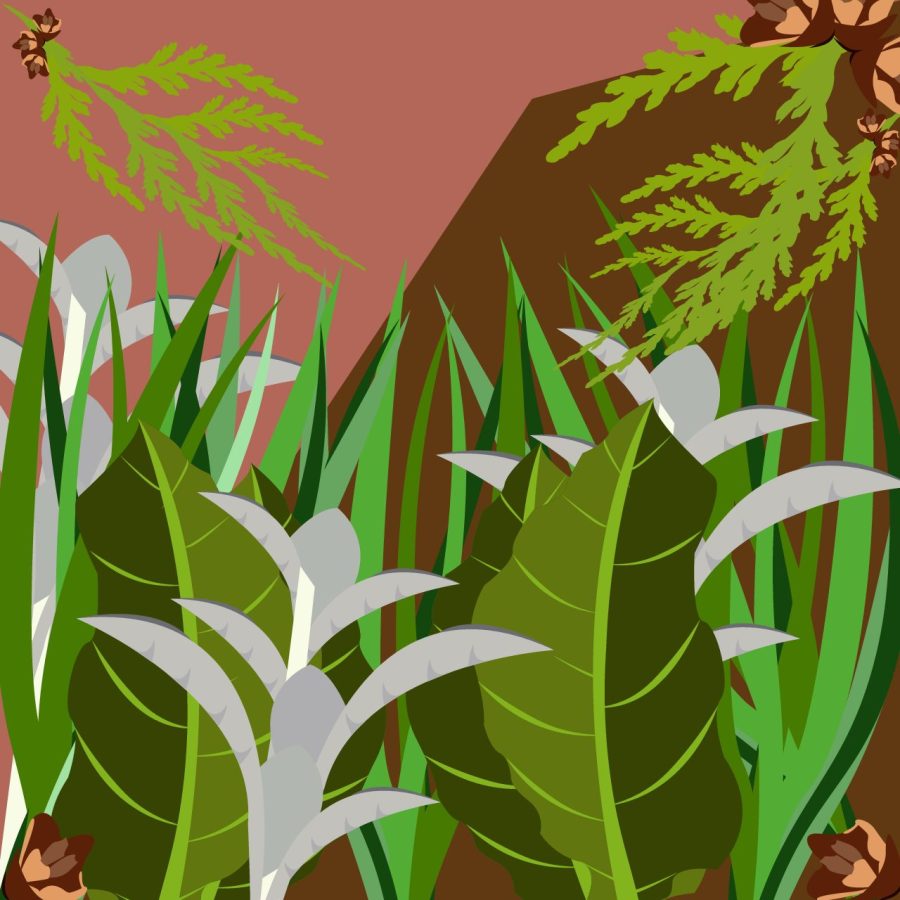Medicine garden to be created over summer months
April 26, 2022
Two indoor medicine gardens are coming to campus that will hold traditional medicines such as tobacco, sage, sweetgrass and cedar. Students and community members will have year-round access to the medicine gardens, which will be located in Whitman Hall and Hedgcock. Coordinators are hoping to have the gardens ready by the upcoming fall semester.
“Especially after COVID, we have found that we really need to return to a space of healing rather than a place of normalcy,” Amber Morseau, director of the Center for Native American Studies, said.
Morseau proposed the idea of a medicine garden to provide cultural medicines that can bring comfort in times of stress as a method of spirituality.
“That is important here, especially because we’re located on Anishinaabe land,” Morseau said. “We’re reestablishing a connection to the original peoples that inhabited the space.”
Building the medicine gardens indoors will not only allow the plants to flourish year-round, but students will also be able to harvest during the winter months. This is beneficial for students who may be away from their traditional collection sites and are in need of quick access to such resources. Screens will also be placed next to the gardens with information about the medicinal benefits of the plants, along with reminders of respectful harvesting practices.
“Many of the plants provide protection against negative energy, can release stress and bring positivity,” Leora Tadgerson, director of the Student Equity Engagement Center, said. “There will be a stage of growth [for the plants]. We’ll watch it and we’ll sing to it and we’ll pray for it, and that will be a really fun time of reflection for ourselves.”
While the main goal of the medicine gardens is to provide students with access to medicinal plants, they are also simultaneously working to combat cultural barriers that continue to exist on campus and in the community.
“The academy is so important for a culturally inclusive space,” Tadgerson said. “Here at Northern, we’re really trying to invest in diversity, equity and inclusion.”
Kateri Phillips, sophomore medicinal plant chemistry major, is one of many students who will benefit from the access to traditional medical plants on campus, especially with her Potawatomi background.
“I don’t know how to grow these things, but it’d be really cool just to see all the different teas and stuff,” Phillips said. “Indigenous teas have so much importance and do so much good for the body. I feel good about myself when I utilize these plants because I know the spiritual and physical benefits.”
During COVID, Morseau notes that many students and community members were able to discover and rediscover Indigenous cultural roots, leaning on those practices to help them through the pandemic. The indoor medicine gardens will provide traditional plants to students and the community that will honor Indigenous lands and offer medicinal remedies to stress and negative energy.
“Students rely on a variety of different spiritual and religious spaces that help them get through these challenging times,” Morseau said. “We need to be able to have that available to our Native American students.”



























